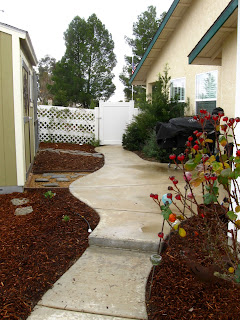Today is the 30th anniversary of the explosion of the Space Shuttle Challenger, a sad date of remembrance but a lifetime ago for most of us. For me, it was a date that, more than any other, changed the course of my life and sent it into a completely different direction than it had been going in.
At the time of the Challenger disaster, I was an astrophysics student, going to classes and working at a local observatory and plugging my way through electromagnetism, physics, astronomy, and chemistry coursework. My hope was to someday enter the space program, ideally as as astronaut candidate, less ideally (but still acceptably) in some behind-the-scenes research or technical capacity.
73 seconds into what was thought to be a very routine launch that morning, there was an explosion which brought those dreams crashing to the ground, just as surely as The Challenger itself crashed back to earth.
In the days and months that followed the explosion of Challenger, there was a lot of talk in the aerospace community (which I was on the edges of) about the future of space travel. There was no question it would be at least a couple of years before another launch happened -- maybe. It was also speculated the entire program might be scrapped.
Friends I knew, who were already working on various science payloads scheduled to go up on future shuttle flights, had been laid off indefinitely. There was even talk that NASA would phase out manned spaceflight altogether as it was just too dangerous (both from a physical as well as a public relations perspective). And that they'd never again launch a non-military, civilian type astronaut into space, as it was just too risky if something went wrong. (This, on the idea that sworn military servicemen and women vow to give their lives, if required, in service to their country. Teachers, scientists, and journalists take no such vow.)
It's ironic that in the end none of those dire scenarios happened, but you know, talk is talk and these future predictions seemed rooted in reality at the time.
And so, anyway, in light of all those things, I did what any self-respecting third year astrophysics student would do, which was leave school, take a year off and backpack around Europe in order to give myself time to reassess my priorities and decide what to do next. It was actually less expensive than staying in school and graduating with no hope of employment would have been.
When I got back eight months later, I knew what I needed to do. I changed my major to journalism in the hopes of becoming a science writer. And 30 years later, I've been done science writing, and in addition, been a science and writing school teacher. Ultimately it was my love for science that led me towards discovering a more healthful way of eating and living, which led me to be interested in our ecosystem and how we can live lightly within it, and led me to investigate new ways of doing that. Or, long story short, homesteading.
And it occurs to me that every glory and tragedy has the power to affect not just the principal players involved, but also has a ripple effect that changes outcomes for those on the edges of the event as well. Were the Challenger accident never to have happened, I can honestly tell you I don't think my life would be where it is now. And so today I not only remember the seven lives lost on that cold January morning, but also remember everyone, either in the space industry at the time or who were slated to go into it, who ended up in places they never would have thought possible then.
I landed in the tall grass in the years after Challenger -- literally -- and I hope for the same, in some way, for everyone who experiences a moment when everything changes and the compass suddenly swings in a whole different direction.
This is a poem I wrote soon after the accident, which was published in "Under The Stars" magazine, a division of Jason Scientific, as I began my new career in writing:
Challenger
Once we had a bird, white
edged in black around her wings
and nose
who cut the breeze
gracefully, and without fanfare
Our bird
flew between the stars
known as one of them
My friends and I thought the bird was ours
and would wait for her to fly over at night
in the company of those close,
comforting stars
and we would watch when, with a booming double-cry
she would gleefully return to us at dawn
the newspapermen took pictures
others waved flags
but we know, really, that she had returned for us alone.
Now,
a twisted treasury of morning flame
she rests, emptied of dreams
in waters heavy with
history and gravity
The newspapermen took pictures
others talked about it
but we knew we'd never see her fly
again, with nose pointed true towards
whatever most reachable and infinite
Tonight the breeze, undisturbed
flutters leaves aloft
stars rise rank and file behind them
alone, as we are
now separated from them by parsecs
which seem much greater tonight
unable to comfort
even the closest of them.































